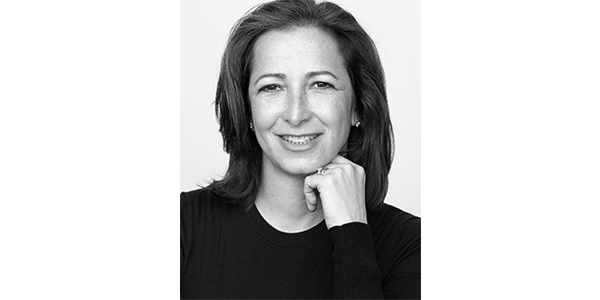Photo by Brigitte Lacombe
2015 Hoffman Lecture
“Engineering Personalized Medicine”
Molly S. Shoichet, Ph.D.
University Professor, Department of Chemical Engineering and Applied Chemistry, Department of Chemistry
Institute of Biomaterials and Biomedical Engineering
University of Toronto
4:00 pm, Thursday, November 5, 2015, Kane Hall – Walker-Ames Room (UW campus)
Reception to follow lecture, location to be announced at lecture
Abstract
We have personal trainers and tailored suits, why don’t we have personalized medicine? With exogenous stem cells for transplantation and endogenous stem cells for stimulation, we have an opportunity to invent medical treatments that will stop and reverse disease instead of merely treating the symptoms of disease. With over a thousand failed clinical trials in stroke, overcoming the devastation in the brain is clearly a significant challenge – and finding a way to get drugs to the brain equally challenging. We designed a local delivery strategy that allows sustained, sequential release of two therapeutics to the brain, which results in endogenous stem cell stimulation and tissue repair. In blindness, where there are only pharmacologics, which slow the progression of disease, we designed a strategy for exogenous cell transplantation. Since vision loss in diseases like age-related macular degeneration and retinitis pigmentosa is associated with loss of photoreceptors, we pursued a strategy for photoreceptor transplantation. Using retinal stem cell-derived photoreceptors and a hydrogel of hyaluronan/methylcellulose, we achieved cell survival and integration greater than that achieved by conventional strategies, ultimately resulting in vision repair.
Speaker Biography
Professor Molly Shoichet holds the Tier 1 Canada Research Chair in Tissue Engineering at the University of Toronto. She has published over 480 papers, patents and abstracts and has given over 310 lectures worldwide. She currently leads a laboratory of 25 and has graduated 134 researchers. She founded two spin-off companies and is actively engaged in translational research and science outreach. Dr. Shoichet is the recipient of many prestigious distinctions and the only person to be a Fellow of Canada’s 3 Nat’l Academies: Canadian Academy of Sciences of the Royal Society of Canada, Canadian Academy of Eng., and Canadian Academy of Health Sciences. Dr. Shoichet is the 2015 L’Oréal-UNESCO For Women in Science Award winner for North America. She holds the Order of Ontario, Ontario’s highest honour and is a Fellow of the American Association for the Advancement of Science. In 2014, Dr. Shoichet was given the University of Toronto’s highest distinction, University Professor, a distinction held by less than 2% of the faculty. Dr. Shoichet received her PhD from the University of Massachusetts, Amherst in Polymer Science and Engineering (1992).
About the Hoffman Lecture
The Hoffman Lecture honors UW Bioengineering’s Dr. Allan Hoffman, now in his 57th year of active research. Dr. Hoffman joined the UW faculty in 1970, when he began to synthesize polymers and hydrogels with special physical and biomedical properties. By combining these special biomaterials with drugs, enzymes and antibodies, he pioneered the applications of temperature and pH-responsive intelligent polymers and hydrogels in the fields of drug delivery, diagnostic assays, and biologically-active and non-fouling polymer surfaces. Much of this research has been carried out in collaboration with Buddy Ratner, Tom Horbett and Patrick Stayton in our BioE Dept. With Dr. Buddy Ratner, Dr. Hoffman is a co-editor of the “Textbook of Biomaterials Science,” now in its third edition. A few of Dr. Hoffman’s awards and recognitions include election as President of the Society for Biomaterials in 1983; receipt of the Founders’ Awards from the Society for Biomaterials in 2000 and from the Controlled Release Society in 2007; election to the National Academy of Engineering in 2005–he is one of five members of our department who have been elected to the NAE. Dr. Hoffman takes great pride in being an international “ambassador for biomaterials” as he continues very actively to lecture and teach short courses at UW and around the world.
For more information contact Ms. Shirley Nollette (206) 685-2002 or nolletts@uw.edu.



